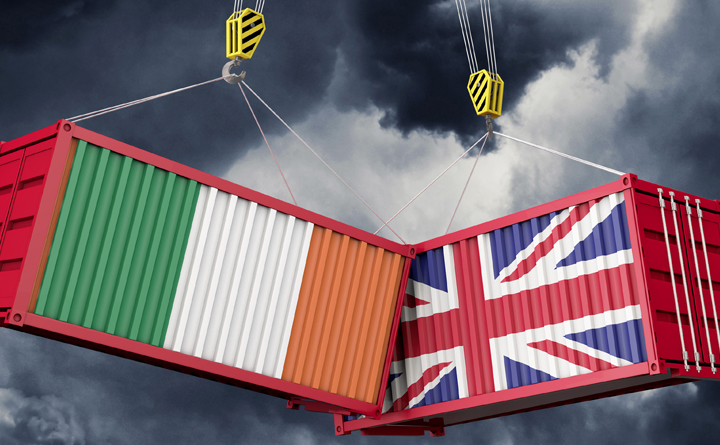Challenges of Sending Goods to Ireland from the UK
Navigating the Post-Brexit Challenges Sending Goods to Ireland from the UK. Since the UK’s departure from the European Union, businesses and individuals have faced a myriad of challenges, especially when it comes to cross-border trade. Among the most affected routes is the transportation of goods from the UK to Ireland. The once seamless process has been complicated by new regulations, customs procedures, and logistical hurdles. In this blog post, we’ll delve into the issues surrounding sending goods to Ireland from the UK post-Brexit and explore potential solutions.
Customs Declarations and Tariffs: One of the primary obstacles businesses encounter when sending goods to Ireland from the UK is the requirement for customs declarations. Previously, as part of the EU single market and customs union, goods could move freely between the two countries without the need for customs checks. However, post-Brexit, goods crossing the border are subject to customs formalities, including declarations and potential tariffs.
Completing customs declarations can be complex and time-consuming, particularly for businesses unfamiliar with the process. Delays in customs clearance can disrupt supply chains, leading to increased costs and customer dissatisfaction. Moreover, the imposition of tariffs on certain goods adds another layer of financial burden for businesses, impacting their competitiveness in the Irish market.
Border Checks and Regulatory Compliance: The introduction of border checks between the UK and Ireland further exacerbates the challenges of sending goods across the Irish Sea. Increased border controls aim to ensure regulatory compliance and product safety but can result in delays and administrative burdens for businesses.
Product standards and regulations may differ between the UK and the EU, necessitating adherence to separate sets of rules for goods destined for Ireland. Failure to comply with regulatory requirements can lead to goods being held at the border or even rejected, causing significant disruptions to supply chains and financial losses for businesses.
Logistical Constraints and Transport Delays: Logistical constraints, including capacity issues and congestion at ports, have also emerged as significant challenges for companies shipping goods to Ireland from the UK. The increased administrative burden of customs declarations, coupled with additional border checks, has slowed down the movement of goods, leading to transport delays and inefficiencies.
Ports on both sides of the Irish Sea have experienced congestion and delays, particularly in the immediate aftermath of Brexit. These disruptions have ripple effects throughout the supply chain, affecting inventory management, production schedules, and ultimately, customer satisfaction.
Solutions and Mitigation Strategies: While the challenges of sending goods to Ireland from the UK post-Brexit are significant, there are strategies that businesses can adopt to mitigate risks and streamline operations:
- Invest in customs expertise: Businesses should consider engaging customs brokers or specialists to navigate the complexities of customs declarations and ensure compliance with regulatory requirements.
- Review supply chain strategies: Evaluate supply chain strategies to minimize disruptions and identify alternative transportation routes or modes to bypass congested ports and mitigate transport delays.
- Enhance collaboration and communication: Strengthen communication channels with suppliers, logistics partners, and customers to anticipate potential issues and coordinate contingency plans effectively.
- Explore warehousing options: Consider establishing or expanding warehousing facilities in Ireland to maintain buffer stocks and minimize the impact of transport delays on inventory availability.
- Stay informed and adapt: Continuously monitor regulatory developments and changes in trade agreements between the UK and the EU to adapt strategies and operations accordingly.
Conclusion: The post-Brexit landscape has presented unprecedented challenges for businesses sending goods to Ireland from the UK. From customs declarations and tariffs to border checks and logistical constraints, navigating the complexities of cross-border trade requires careful planning and proactive measures. By investing in customs expertise, reviewing supply chain strategies, enhancing collaboration, and staying informed, businesses can mitigate risks and maintain seamless operations in the face of evolving trade dynamics. Despite the challenges, opportunities exist for those willing to adapt and innovate in the new trade environment.
If you have any questions about this blog or need Fright Forwarding to manage your shipping from the UK to Iarlend, please contact us via our website at www.uneek-group.com
Address: Uneek House, Amberley Way, Hounslow, Middlesex, TW4 6BH
Call: +44 (0) 20 8569 4949
E-mail: [email protected]
Website: www.uneek-group.com
Blog Title: Challenges Sending Goods to Ireland from the UK
Blog Author: Mark Watts

